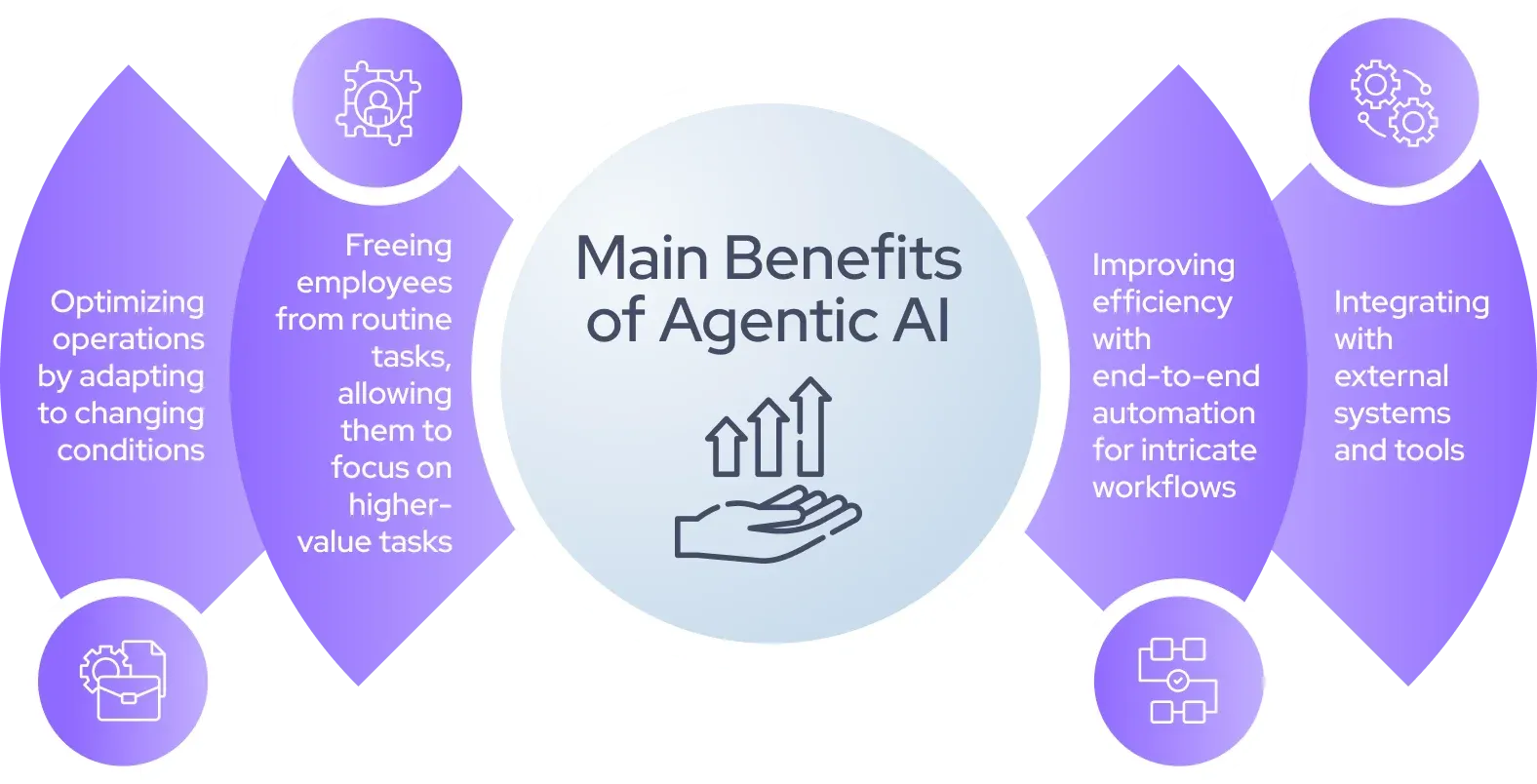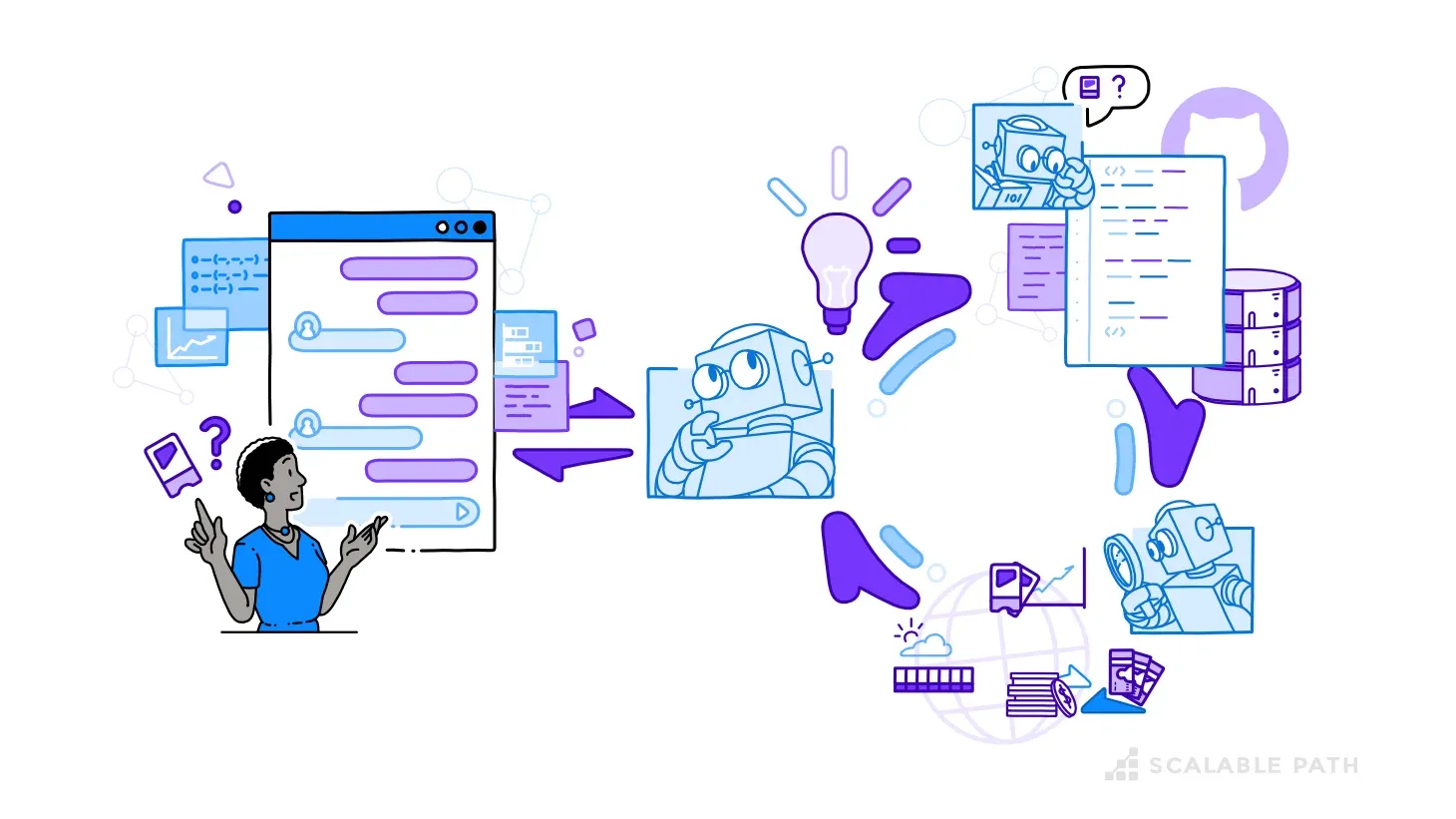What Is Agentic AI?
Agentic AI marks the next frontier in artificial intelligence.
Unlike traditional automation that performs isolated tasks, agentic AI systems are designed to make decisions, sequence actions, and carry out multi-step operations with minimal human input.

Forrester named it a top AI trend for 2024, and Salesforce projects over a billion AI agents in use by 2026.
It’s more than hype. According to UiPath’s 2025 Agentic AI Report, 93% of IT executives at billion-dollar enterprises are highly interested in adopting agentic AI—primarily for better oversight, agility, and control over critical business processes.
Where Agentic AI Is Delivering Value
Agentic AI is already transforming workflows across departments—from IT and HR to finance, sales, and customer service.
Sales & Marketing
CIOs like Jay Upchurch at SAS are leveraging AI agents to improve lead scoring, personalize outreach, and enhance segmentation strategies. Platforms like Gong integrate agents into the revenue cycle, acting as briefing tools or simulators for onboarding and training.
Snowflake's internal Sales Assistant empowers sales teams with real-time data-driven insights—cutting research time and enabling sharper client targeting.
Customer Experience
Whether it’s recommending products or resolving inquiries, AI agents are revolutionizing customer interactions. At SharkNinja, agentic AI drives personalized shopping experiences.
At College Possible, it’s transforming education access by reducing advising workflows from 35 minutes to under 3—freeing up time for meaningful, human connections.
Meanwhile, firms like Mitel and 1-800Accountant are using conversational AI agents to deflect up to 65% of routine support queries, boosting service efficiency.
Back-Office Operations
Agentic AI also shines in high-volume, rules-based tasks. Xerox is rolling out agents for contract review, IT ticketing, and financial workflows like invoice matching. At Good360, assistive agents manage donations and disaster recovery logistics—handling routine tasks so teams can focus on mission-critical work.
In finance and compliance, leaders at Akamai, Transcend, and Pegasystems are deploying AI to optimize order processing, validate documentation, and automate audits—turning repeatable tasks into autonomous workflows.
Strategy, Not Hype
Despite growing excitement, adoption remains deliberate. Executives emphasize that agentic AI is not about replacing people but about amplifying their capacity.
“It’s not about handing over decision-making,” says Gong’s Eilon Reshef. “It’s about building reliable, repeatable processes where agents can execute well-defined tasks.”

Challenges remain—particularly around data governance, interoperability, and testing. As Salesforce’s Andy White notes, consistent agent behavior requires production-grade environments and rigorous validation, especially with non-deterministic LLMs.
For many leaders, the biggest hurdle isn’t technical—it’s integration. “The real value comes when AI agents can work together across systems,” says ServiceNow’s Romack. Companies like Akamai and Salesforce are already creating agentic frameworks and maturity models to guide enterprise deployment.
Always On, Always Improving
Agentic AI isn’t just about automation—it’s about transformation. As adoption scales, AI agents will evolve from digital assistants to intelligent co-workers: autonomous, context-aware, and endlessly improving.
“I envision thousands of AI agents working in the background,” says Romack, “each handling a narrow task but collaborating seamlessly like a team of digital coworkers.”
In this future, work isn’t just faster—it’s smarter, more strategic, and more human-centered than ever.







